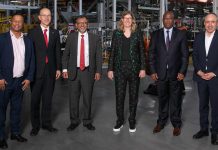Bridgestone Southern Africa (BSAF) has announced its proposal to close its bias tyre manufacturing plant in Port Elizabeth. This move is fully in line with the recently announced mid-long term business strategy laid out by Bridgestone Corporation which plans to strengthen its core tyre business through focus on premium profitable growth segments. The announcement confirms the company’s dedication to implement this strategic framework. BSAF has initiated a Section 189 notice and a consultative process in compliance with the South African Labour Relations Act.
BSAF has in recent years seen its financial performance come under pressure due to a variety of economic conditions and industry factors. In addition, Bridgestone’s Port Elizabeth plant is specifically geared towards the production of older bias tyres, which are globally in decline and being phased out in South Africa as it is an unprofitable market. The effects of a shrinking economy and an influx of cheap imports compounded by rapid changes in the tyre industry has prompted BSAF to restructure its operations.
The agricultural industry is shifting to radial tyres, which are longer lasting, and the production of which is modern and high-speed. To produce radial tyres an investment in a completely new multi-billion-rand plant would be needed, which is not feasible in the current economy.
“The bias industrial and off-the-road tyres manufactured at the Port Elizabeth plant which have since been trumped by a growing trend in the production of radial tyres globally, has meant a steady decline in market demand over the years, eroding profitability for BSAF,” says Jacques Fourie, BSAF Chief Executive. “All these technical and economic factors combined have created an environment in which the PE factory is unable to continue running, despite all efforts to sustain the operation. To preserve the competitiveness of BSAF and a sustainable future for its employees, partners and stakeholders, the proposed closure of the PE plant is the only viable option,” he adds.
The company says the proposal to close the PE plant has been reached following very serious consideration and has not been taken lightly. In recent years the company has considered many other alternatives, including cost containment measures, the sale of the plant to a suitable buyer, export opportunities, public funding and possibly relocating different product lines to PE. However, while some of these options have been explored thoroughly, the current market dynamics make it extremely challenging to find a longer-term sustainable solution.
BSAF made assurances that it would exercise due diligence to ensure compliance with all legal requirements and accepted practices, as well as to ensure that all 252 affected employees are treated fairly and supported through the transition.
“We realise the impact the project will have on the personal lives of PE employees and we are committed to mitigate the impact of the proposed closure. Fair severance packages will be provided and where possible, skills will be redeployed,” Jacques Fourie concludes.
BSAF, employing over 2,000 people, remains fully committed to its business in Southern Africa and its Brits manufacturing facility which continues to produce radial tyres for OEMs and replacement customers.















